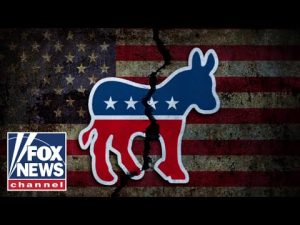On the politically charged campus of DePaul University in Chicago, an unsettling drama unfolded, reflecting a growing concern about safety and free speech across college campuses. It seems an Illinois man has been charged with hate crimes following an attack on two Jewish students during a peaceful pro-Israel demonstration. Remarkably, this arrest comes more than five months after the incident, raising questions about the responsiveness of law enforcement and the university administration. As the shadow of anti-Semitism looms over the campus, one can’t help but wonder how safe students truly feel as they engage in what should be open discussions.
Last November, two Jewish students held an informal gathering to discuss the situation in Gaza, demonstrating the essence of democratic discourse. However, their dialogue was met with violence from masked individuals, resulting in serious injuries. This deplorable act led to one student suffering a broken wrist and another enduring a brain injury. The belated arrest of a 20-year-old suspect on felony charges is a step towards justice, yet it hardly seems enough for a community that remains apprehensively vulnerable. Until the second suspect is apprehended, the safety on campus remains in question.
In the quest for answers and accountability, the victims are suing DePaul University. Their attorneys argue that the university’s negligence in addressing anti-Semitic sentiments contributed to an environment where violence became almost inevitable. The notion that free speech could be silenced under the threat of assault is not just chilling; it’s an affront to the core principles of higher education and society at large. One cannot ignore the irony of students seeking knowledge and peace only to encounter hostility and violence.
As the president of DePaul University is now scheduled to meet with pro-Israel student groups, one can only hope this signals a shift towards more proactive measures against intolerance. Yet, the lingering question remains: would these dialogues have been initiated if not for the horrific attack? It’s high time that universities prioritize creating safer, more inclusive environments where students of all backgrounds feel secure enough to voice their opinions without fear of retaliation. After all, if a campus can’t safeguard its students, can it really claim to be an institution of liberal education?
With the ongoing protest culture sweeping through campuses nationwide, DePaul University’s incident serves as a stark reminder of the fragility of free expression in an age of heightened political tensions. If universities fail to uphold the principles of free speech and protect their students, then they’re neglecting their fundamental responsibility. Perhaps the administration at DePaul could take a cue from the old adage: prevention is better than cure. That might just save them from future lawsuits and, more importantly, protect their students from harm.







